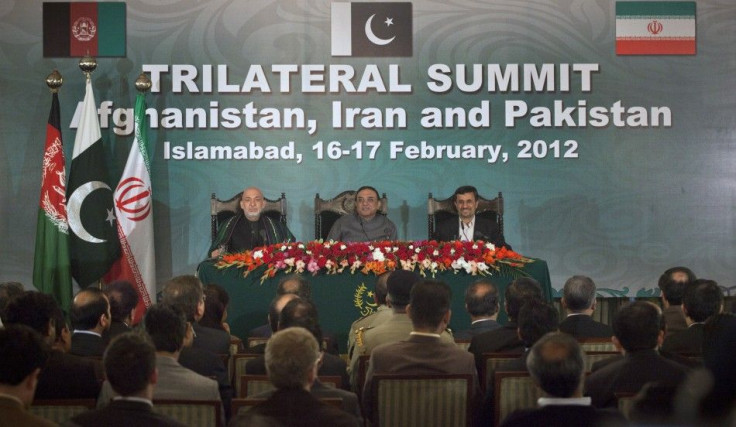Iran's Nuclear Push May Pull Region into Arms Race: UK Diplomat

Iran is clearly trying to develop nuclear-weapons capability -- and if it succeeds, then it will set off a dangerous round of nuclear proliferation across the Middle East -- British Foreign Secretary William Hague said in an interview published on Saturday.
Iran says its uranium-enrichment program is purely for civilian purposes, but Western powers suspect Tehran is trying to develop the ability to produce nuclear weapons.
Western powers have been pressing Tehran to hold substantive talks on its nuclear program and want it to halt its uranium enrichment, but Iran says it has an absolute right to press ahead with its plans.
Several rounds of increasingly punitive United Nations and Western sanctions have failed to persuade Iran to stop its enrichment program, elements of which have been moved to underground buildings for greater security.
The Iranians are clearly continuing their nuclear weapons program, Hague told The Daily Telegraph. If they obtain nuclear-weapons capability, I think other nations across the Middle East will want to develop nuclear weapons.
Hague added: The most serious round of nuclear proliferation since nuclear weapons were invented would have begun, with all the destabilizing effects in the Middle East, and the threat of a new Cold War in the Middle East without necessarily all the safety mechanisms. ... That would be a disaster in world affairs.
There has been public discussion in Israel about whether it should attack Iran to stop it from developing a nuclear bomb, and tension between the two foes has been raised by attacks on Israeli diplomats abroad and the recent assassination of an Iranian nuclear scientist in Tehran.
We are very clear to all concerned that we are not advocating military action, Hague said in the interview. We support a twin-track strategy of sanctions and pressure [on the one hand], and negotiations on the other hand. ... We are not favouring the idea of anybody attacking Iran at the moment.
The latest signal from Tehran that it might be willing to resume talks on the nuclear issue, in the form of a letter to European Union foreign-policy chief Catherine Ashton, has been greeted with cautious optimism by the United States and the European Union.
(Reporting by Tim Pearce; Editing by Sanjeev Miglani)
© Copyright Thomson Reuters 2024. All rights reserved.





















